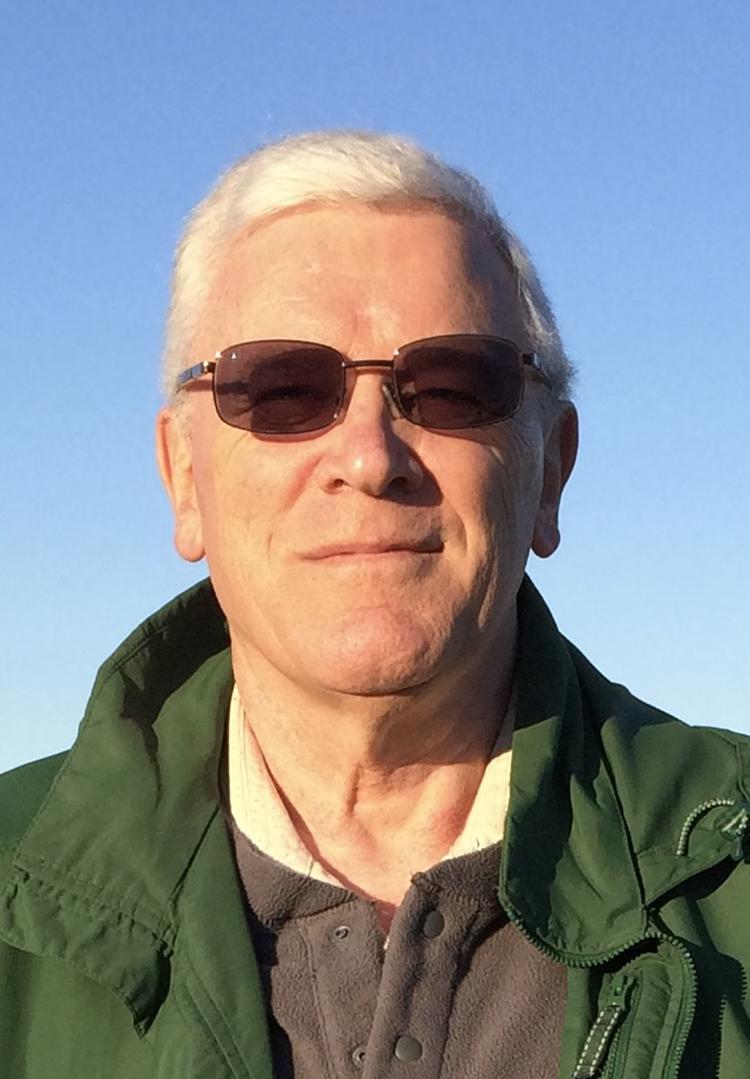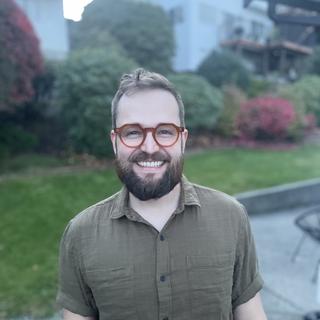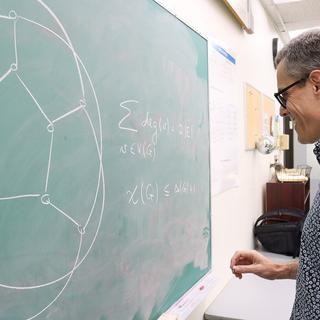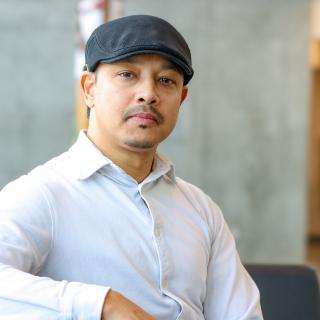Stephen Hume received the 2022 Bruce Hutchinson Lifetime Achievement Award from the Jack Webster Foundation.
Stephen Hume, a Vancouver Island University (VIU) Creative Writing and Journalism Professor, received the Bruce Hutchinson Lifetime Achievement Award from the Jack Webster Foundation.
The award, which Hume received this July, recognizes the exemplary careers of BC journalists. It is presented to senior reporters and editors who have received distinction in their communities for work of long-lasting significance, clarity, fairness and innovation.
Hume’s journalistic career spans half a century. He has been an Arctic correspondent, and editor-in-chief and a columnist for The Vancouver Sun and Focus on Victoria magazine. Hume has been short-listed for 15 journalism awards and nominated for Jack Webster Awards eight times. He has also received three National Newspaper Award citations, a Canadian Policy Research Award and a Dolly Connelly Award for environmental writing.
We caught up with Hume to talk about the lifetime achievement award, his extensive career as a journalist and why he decided to become a Creative Writing and Journalism professor.
How does it feel to receive the 2022 Bruce Hutchinson Lifetime Achievement Award from the Jack Webster Foundation?
It’s both gratifying and humbling. Gratifying to be recognized by peers I admire and respect; humbling to be included with the literary stylists and hard-nosed reporters who have won this award before me – Bruce Hutchison, for whom it is named; Denny Boyd, Moira Farrow, Alan Fotheringham, Vaughn Palmer, Vicki Gabereau and Kim Bolan. That’s esteemed company.
Your journalism career spans half a century. What is a story you wrote that had a profound impact on you and why?
As a very young reporter just beginning my career, I got the routine assignments nobody wanted. For example, 50th wedding anniversaries, which were so infrequent then as to warrant a news story – life expectancy for a man who got married in 1915 was 46 years, so not many marriages lasted half a century. And 100th birthdays merited a story. I was sent one day to a small prairie town nursing home to write about a man who was born at the end of the American Civil War. He wasn’t very responsive to my questions but it was hot day so I went across the street and got him an ice cream cone. He suddenly sat up in bed and told me an amazing story about how as a teenager he’d been sent to bring meals to the town jail for the prisoner – the famous Oklahoma Territory outlaw Belle Star. My routine birthday brief went front page. That experience taught me a guiding principle – if everybody has at least one great, defining story in their life, a journalist who pays attention is swimming in a sea of stories.
Why did you decide to become a creative writing and journalism professor?
I had a summer job at the Victoria Daily Times and was sent to interview a famous economist who was giving a talk at the university. My city editor reminded me that it was an overtime assignment. I thought: “Here I am drinking $50 Scotch with a guy most of the faculty at the University of Victoria would pine to spend an hour with and I’m getting paid time-and-a-half to do it – this is the job for me!” Shortly after that the Edmonton Journal asked me to take a posting to their Arctic Bureau, which they were having difficulty filling. I took it. I missed my grad ceremonies at UVic because I was on a boat in the pack ice of the Beaufort Sea. The first year up there I travelled 300,000 miles in bush planes, canoes, dogsleds and the court’s old DC-3. I slept in tents, igloos, once in a snow trench at 30-below-zero. I learned to wear my camera inside my parka so the oil wouldn’t freeze and how to hunt snow white ptarmigan in the snow for a meal – look for the black of their eye. After that, all other options seemed pretty tame.
I started teaching to give back some of what I’ve been given. And out of self-interest. Students are a window on the world to come – important for an old guy from the world that was.
What writing advice do you give to VIU students who want to become journalists?
Always satisfy your curiosity. Read, read and read some more, as widely and as eclectically as you can. Write all the time, whether for publication or not. Be persistent. When faced with decisions where it’s difficult to decide the course of action, decide on the one that requires you to change. Whenever a door opens, step through it. Once it closes, it may never open again. Do not hesitate to go to the margins – small towns are as rich in possibilities as big cities for a journalist who thinks and pays attention. Remember, the centre of everything in your life is where you are standing.
If you could tell your younger writing self anything, what would it be?
Your instincts were right! Don’t sweat the small stuff.





